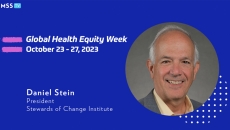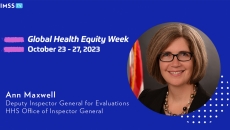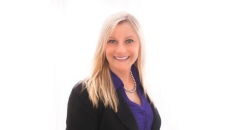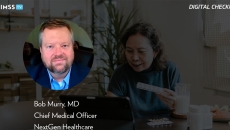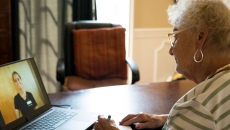Legislation
According to Daniel Stein, president of Stewards of Change, a fully interoperable central consent registry will allow everyone in the U.S. the right to choose how, and with whom, their personal and health data is shared.
Ann Maxwell, deputy inspector general for evaluations at the U.S. Department of Health and Human Services Office of Inspector General, discusses the case for making the pandemic-related CMS telehealth expansion permanent.
Jennifer Mathieu, senior vice president of professional and government affairs at AMCP, provides an update on the Access to Prescription Digital Therapeutics Act 2023 moving through Congress.
Patrick J. Kennedy, former U.S. Representative, and Nawal Roy, founder and CEO of Holmusk, discuss how the pair are using experience and data to create a policy guide for lawmakers.
Dr. Robert Murry, chief medical officer at NextGen Healthcare, talks about the end of pandemic-era telehealth policy changes, how providers have adopted telemedicine following the pandemic and CMS' commitment to telehealth and privacy.
Former U.S. Representative Patrick J. Kennedy and Nawal Roy, founder and CEO of Holmusk, relay how clinical data can help solidify mental health coverage.
Chad Peterson, managing director at NetSPI, discusses how care organizations can protect health information by ensuring HIPAA compliance – and what companies can do to reduce vulnerability through reconfiguration.
HIMSS23
Lawrence Voyten, HIMSS board member and national advocacy chair, details how HIMSS chapter leaders can proactively support health equity and interoperability with their local governments.
According to an audit by the Office of the Inspector General, Medicare improperly paid for $580 million of psychotherapy care, including $348 million of telehealth services, during the first year of the COVID-19 public health emergency.
At HIMSS23, Jodi Daniel, managing director of Crowell Health Solutions, discussed the evolving policy landscape for telehealth, remote patient monitoring and other digital health technologies as the public health emergency comes to a close.
